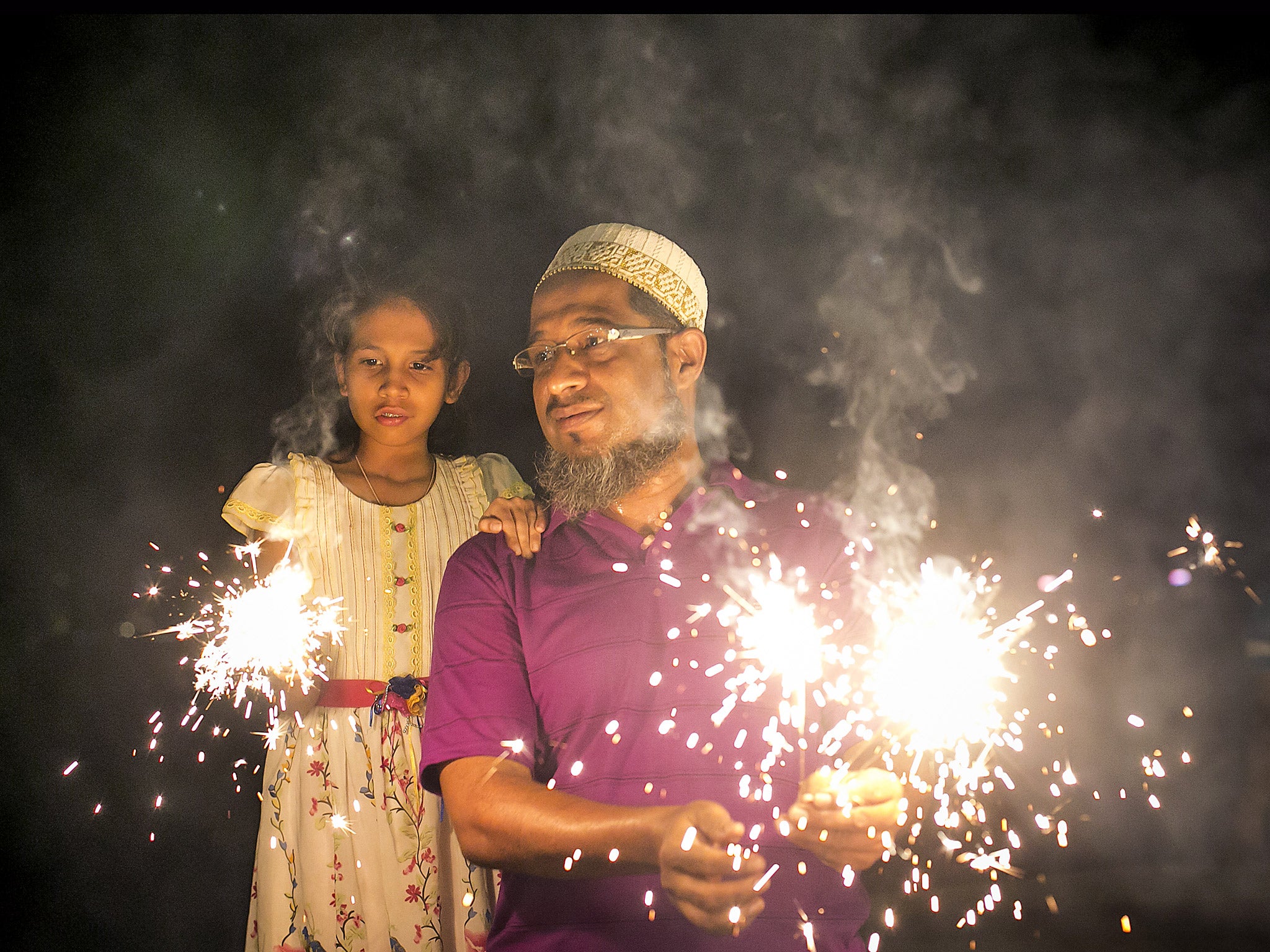Delhi's air pollution hits hazardous levels on night of Diwali
Delhi the 11th most polluted city in world, according to World Health Organisation

Your support helps us to tell the story
From reproductive rights to climate change to Big Tech, The Independent is on the ground when the story is developing. Whether it's investigating the financials of Elon Musk's pro-Trump PAC or producing our latest documentary, 'The A Word', which shines a light on the American women fighting for reproductive rights, we know how important it is to parse out the facts from the messaging.
At such a critical moment in US history, we need reporters on the ground. Your donation allows us to keep sending journalists to speak to both sides of the story.
The Independent is trusted by Americans across the entire political spectrum. And unlike many other quality news outlets, we choose not to lock Americans out of our reporting and analysis with paywalls. We believe quality journalism should be available to everyone, paid for by those who can afford it.
Your support makes all the difference.Pollution in Delhi soared to hazardous levels on the night of Diwali, hitting 40 times the limit recommended by the World Health Organization (WHO).
Already one of the most polluted cities in the world, the Indian capital deteriorated even further thanks in part to firecrackers being set off to celebrate the Hindu festival of lights.
Levels of PM10 particulates - polluting particles that are so small they can settle in the lungs - soared to 2,000 micrograms per cubic metre at the height of the celebration, The Times of India reported.
WHO guidelines suggest a limit of 50 per cubic metre.
Despite an anti-firework campaign by the Delhi government, all air safety standards were reportedly breached during the festival which sees millions attend firework displays, prayers and celebratory events across the country.
Sulphur dioxide, which can lead to spikes in asthma and other respiratory diseases, was also found to be very high in areas of the city.
A 2016 study by WHO found that India has 10 of the 20 most polluted cities in the world, with Delhi placing 11th.
Around 620,000 people in India are estimated to die prematurely every year due to air pollution.
Diwali sees millions attend firework displays, prayers and celebrations across the world every autumn.
Celebrated by Hindus, Sikhs and Jains, it represents the triumph of light over darkness and good over evil.
Join our commenting forum
Join thought-provoking conversations, follow other Independent readers and see their replies
Comments